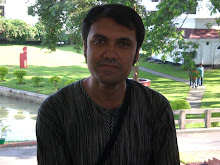
UNICEF says physical punishment of children in Bangladeshi schools, homes is widespread
Oct 9, 2009
By JULHAS ALAM
Associated Press Writer
DHAKA, Bangladesh (AP) _ More than 90 percent of Bangladeshi children have at some point been physically punished in school and nearly three quarters of them face similar treatment at home, according to a report from the United Nations children's agency.
UNICEF representative to Dhaka, Carel de Rooy, said such punishment violates the rights of the children.
"Hitting or smacking children is a type of violence against children that goes against children's rights," Rooy said in a statement that accompanied the report's release Thursday.
But, on Friday, a parent and teacher both defended physically punishing children as an effective way of disciplining children.
Salina Chowdhury, a mother of two in the capital, Dhaka, said using physical punishment helps her teach her children when they misbehave.
Children often do not respond to encouraging words, Chowdhury told The Associated Press via telephone, adding, "in that case, one or two slaps work better."
Siddiqur Rahman, a teacher at a school for girls in the northern district of Mymensingh, said he often hits students with sticks, but only after counseling does not work.
"Punishing them physically often works," he said in a telephone interview.
The UNICEF report states 91 percent of children in Bangladesh's schools are subject to physical punishment, while 74 percent experience corporal punishment at home.
The agency surveyed 3,840 households both in urban and rural areas, interviewing the head of each household and at least one child per house between the ages of 9 and 18, the report said.
Some 87.6 percent of children face beatings with sticks or canes in schools with teachers most often hitting the palm of their hands. Other punishments include twisting ears or skin, pulling hair, slapping them or forcing them to kneel in class.
The survey said 53 percent of students reported that "many to most" of their classmates suffer physical punishment, with 23 percent stating that such punishment in schools takes place daily.
In case of physical punishment at home, more than 69 percent said they are slapped, and 99 percent said they face scolding or are threatened.
Some 60 million of Bangladesh's 150 million people are children, according to UNICEF.

No comments:
Post a Comment